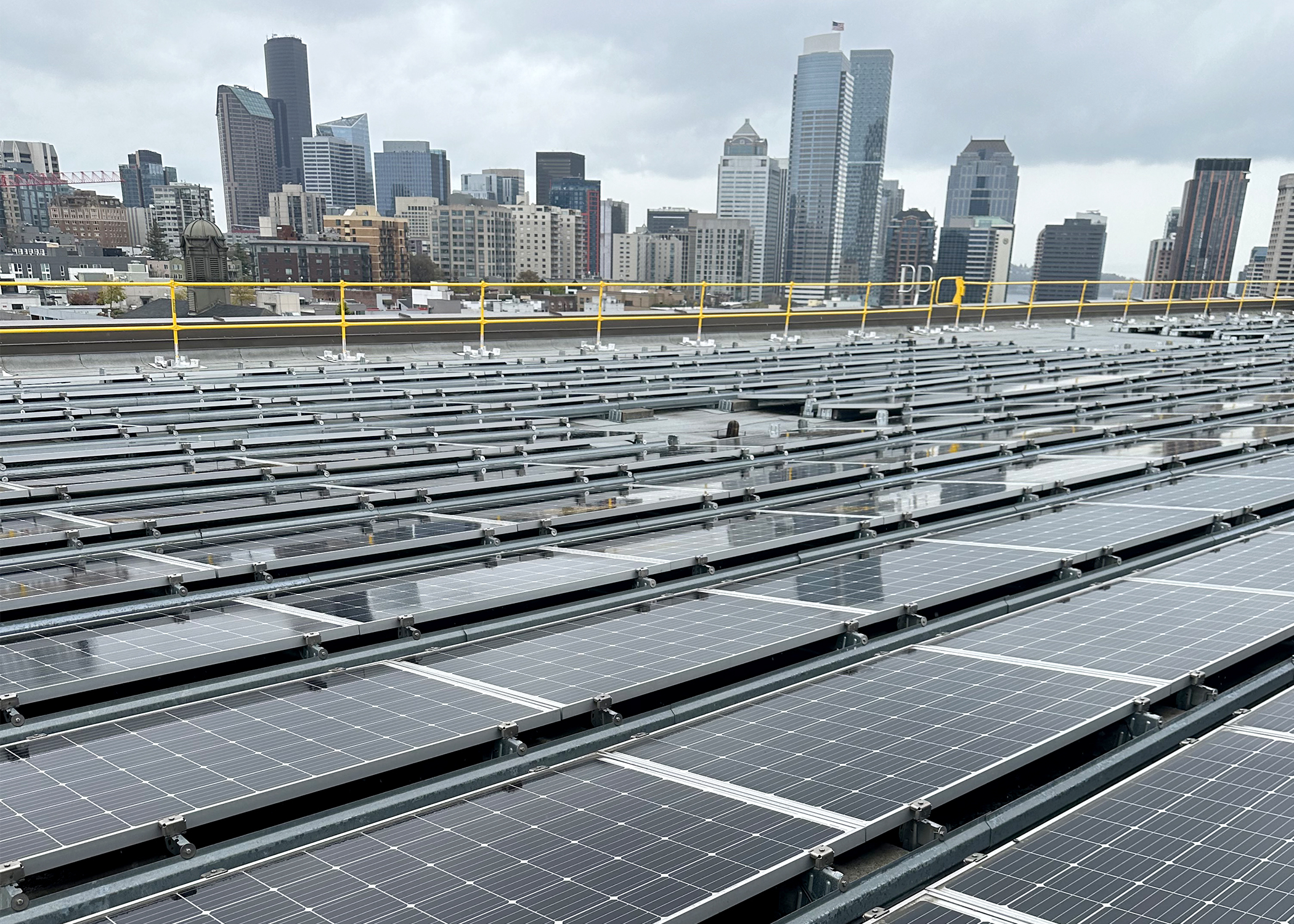Seattle Central EcoDistrict

Seattle Central’s HVAC system, originally powered by heavy fuel oil and later by natural gas, is now slated to be replaced with a cutting-edge, energy-efficient heating and cooling system, with backing from grants and legislative support.
This visionary environmental project, transitioning to an all-electric HVAC system, is part of a broader “EcoDistrict” initiative. Initial efforts for this project began in 2018, when the college began looking for alternatives to heat and cool the campus. Around the same time, the state began drafting legislation to move state agencies off of fossil fuels and reduce greenhouse gas emission. Seattle Central commissioned a feasibility and design study to assess alternatives energy systems that were all-electric, renewable, and as self-reliant as possible. Out of this study came the term EcoDistrict, which envisions a network of campus and neighboring buildings that store, generate, and share energy sources.
This initiative would allow for energy storage during non-business hours and utilization during high-demand periods, significantly reducing costs and carbon footprints. It also envisions leveraging innovations such as tapping sewer mains for heat extraction and utilizing geothermal fields. Smart building controls and expanded solar panel installations, which began in 2016, will further optimize energy use and production.
The EcoDistrict will also serve a dual purpose as a “living laboratory” for students in the Sustainable Building Science Technology Program at South Seattle College. These students will gain hands-on experience with advanced energy systems, preparing them for careers in clean building management.
Funding this $22 million project requires a blend of local funds, state contributions, and other financing mechanisms. To date, the college has invested $2 million through grants, including a $700,000 federal energy grant secured by Seattle City Light. A critical financial investment in the state’s next biennium cycle is under consideration. Based on funding needs, college leadership has recommended launching the EcoDistrict in the 2027-2029 biennium.
By embracing sustainable technologies, fostering educational opportunities, and creating shared resources, Seattle Central’s EcoDistrict vision is more than just an infrastructure upgrade — it’s a step toward reimagining the campus’ role within the community.